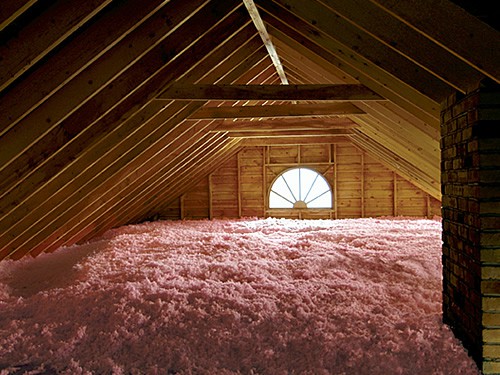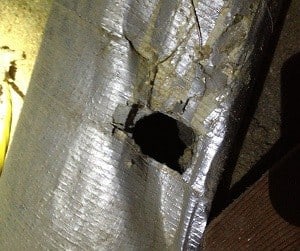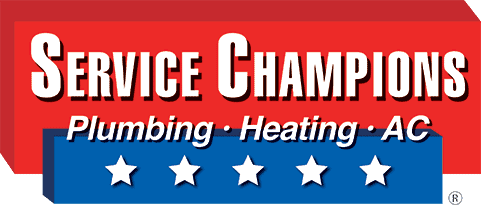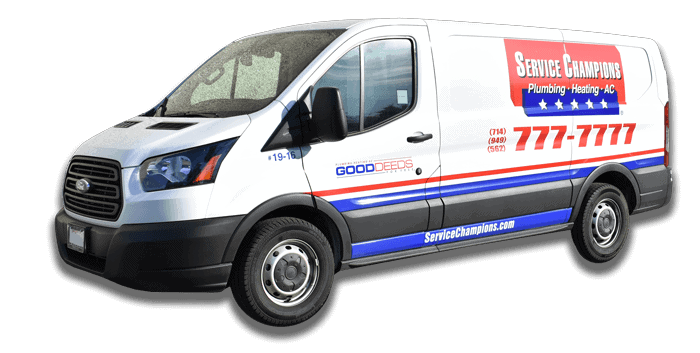The Perfect HVAC System
What does the perfect HVAC system look like? How does the home play a role?
While some may simply stick an HVAC system in the house and make it work, there is more to caring for an expensive HVAC system than just that. In fact, homeowners who really want their systems to last invest in the care necessary to help it work, not just for now, but for later too.
Home insulation and a healthy HVAC system work hand in hand. One without the other, homeowners can expect terrible energy loss and a decline in home comfort. In order for homeowners to fully enjoy all the benefits of heating and air conditioning, insulation and maintenance are crucial.
The Perfect HVAC System is Clean and Maintained
A solid HVAC system is cleaned and maintained. In turn, homeowners receive healthy clean air from a healthy and strong HVAC system.
What is maintenance exactly and why is it so highly encouraged? Maintenance is professional care from a certified HVAC contractor. He or she evaluates the entire HVAC system, from top to bottom. They clean every part of it, test and retest to ensure proper, safe and healthy service.
Why is cleaning such a large part of HVAC system maintenance? Because air constantly flows in and out of the HVAC system, there are all sorts of strange things inside of it. More often than not, these particles accumulate and even grow. As a result, the HVAC system works with buildup, slowing down service, using more energy and spewing that buildup back into the house. Intensive cleaning helps the HVAC system last longer, work better and use less energy. As a result, 90 percent of permanent damages and expensive repairs are prevented.
With maintenance, homeowners trust the HVAC system to:
- Work with efficiency and reliability
- Deliver healthy indoor air
- Cost less to heat and cool the home
- Last beyond its years
While some homeowners shy away from HVAC system maintenance, homeowners with clean and efficient systems do not.
They prevent issues that can include:
- Smelly or gritty air
- Energy loss and overspending
- Refrigerant leaks
- Broken wires and burnt motors
- Spotty HVAC system performance
In short, there are no problems for homeowners who rely on maintenance, building the perfect HVAC system in the perfect home. As a result, these homeowners spend less on their HVAC systems overall and enjoy an elevated lifestyle.
The Perfect HVAC System Works in a Fully Insulated Home
Complete home insulation reduces heat loss, and in turn reduces energy spending. While this task sounds daunting, it is well worth the effort.
The majority of heat loss comes from the home. Insulation prevents outdoor air from entering the home as well as indoor heat escape. With complete insulation, homeowners enjoy every bit they spend on heating and air conditioning.

To start the home insulation process, first work on the attic where the most amount of heat loss takes place. The attic houses extreme temperature swings. If there are leaks in the air ducts, attic air most certainly enters and flows into the home. Not only does this undo heating and air conditioning, it also pollutes the air.
While in the attic, insulate the air ducts. This is a layer of insulation that wraps directly over the air ducts. Air duct insulation protects heating and cooling from escaping through the skin of the air ducts. With the attic the temperature that it is, this heat transfer adds to significant changes.
From thereon, work on the floors, windows and walls. Be sure to seal all cracks around windows and doors with weather-strip or caulking.
What Does HVAC Affect in the Home?
Did you know that the air in our homes is likely dirtier than the air outside? The health of our indoor air depends on many factors, including heating, ventilation, home health and HVAC health.
The state of your HVAC system influences the comfort of your home. That means that it can either help or hurt your home and lifestyle goals. By correctly learning how the HVAC affects the home, homeowners can effectively use HVAC to better home life.
HVAC Affects Indoor Air Quality
Indoor air quality largely depends on the cleanliness of the home and HVAC system. When allergens and bacteria fill the home, airflow sweeps those irritants into the HVAC system. Those particles mix with other buildup ingredients and flow back into the home air.
How important is it to keep the HVAC system and home clean? Stubborn buildup and microbiological growth inside the HVAC system cause expensive heating repairs and permanent damages. These are costs homeowners can easily avoid by keeping the HVAC system clean.
These damages include:
- Sticky or burnt blower motors
- Encrusted wires and blades
- Corrupted flame sensors
- Clogged condensate lines
- Microbiological growth over evaporator coils
- Overused air filters
Because airflow carries particles, pollutants and bacteria in and out of the HVAC system, it is equally important to keep the home clean too. Since both parts are related to each other for the best indoor air quality possible, homeowners should always consider what they do—or don’t do—for their home and HVAC.
What should homeowners do to protect the health of their home and HVAC?
- Keep the home clean
- Rearrange furniture to encourage full airflow
- Schedule HVAC maintenance at least twice a year
- Clean or replace the air filter to the HVAC system as necessary
HVAC Affects the House and Furniture
Take a look around the home, and you will likely find an assortment of different materials. The floors may be of carpet, the furniture of wood, the walls of stone and the windows of glass. Each wears in its own way, and deals with temperature accordingly.
Depending on the air in your home, these materials change.
- Too much moisture in the air causes wood to warp and mold.
- Too little moisture in the air causes furnishings to crack, split and lose luster.
- High temperatures dehydrate canvas and glass finishing.
- Low temperatures allow stone to carry frigid air, making the home more difficult to retain heat.
In the same way that HVAC affects the home, the materials you choose to put in the home can help or hurt the HVAC system.
For example, wood and stone are the more hypoallergenic options. Compared to carpet or canvas where dust and particles catch, wood and stone make for easier cleaning.
Switch to wood, stone or bamboo furnishings. Especially for allergy sufferers, vinyl and leather are smart choices to reduce allergens floating about the room.
HVAC Affects Your Home Comfort and Health
The same troubled HVAC that negatively affects the home and furniture also affects your home comfort and health.
Dehydrated HVAC dries out hair, skin, nails, eyes, nose and throat. Poor indoor air quality aggravates allergies and other respiratory conditions like asthma and emphysema.
Fortunately, heating specialists utilize HVAC to work for the good. Your HVAC system is more than capable of cleaning, moisturizing and purifying your home.
Because the home and HVAC system work together, heating technicians first recommend maintenance. By having your HVAC system maintained, technicians rule out any potential culprit for bad behavior from the furnace.
Then, to fortify your furnace with additional abilities, HVAC specialists encourage add-on solutions such as:
- BioCide Chamber
- UV lights
- AirScrubber Plus
- Advanced air filters
- Central humidifiers
- Dehumidifiers
- Additional air purifiers
Each of these advanced HVAC solutions is designed to improve indoor air quality and home comfort.
HVAC Repairs for Better Indoor Air Quality
Indoor air quality refers to the quality of the air inside your home. It is the air we breathe and the same air that goes through the heating and air conditioning system whenever the thermostat is on.
There are several factors that contribute to indoor air quality. This includes, cleanliness, safety, humidity and temperature.
Homeowners with poor indoor air quality experience:
- Lower home comfort
- Inaccurate heating and air conditioning
- Inefficient HVAC performance
- Increased chances for permanent damages and expensive services
- Higher utility bills
Typically, poor indoor air quality is marked with:
- Pathogens, like bacteria and microbiological growth
- Particles, like dust, insects, fecal matter, allergens and asbestos
- Gasses and vapors, like carbon monoxide and carbon dioxide
Because the air in our homes also travels through the heating system, the furnace itself affects indoor air quality. In particular, there are a few HVAC repairs essential for better indoor air quality.
HVAC Repairs for Air Duct Leaks
HVAC Repairs for air duct leaks and holes are urgent.

Putting off on air duct HVAC repairs results in:
- Significant energy loss
- High utility bills
- Low indoor air quality
- Damaging buildup
- Compromised home comfort
Even with healthy air ducts, the attic is responsible for up to 25 percent of heat loss. This only increases with needed HVAC repairs.
To protect indoor air quality, HVAC repairs for air duct tears are essential.
In addition, to prevent future HVAC repairs for air ducts, homeowners are encouraged to have air ducts wrapped in insulation. This guards the air ducts from additional heat loss and physical trauma.
While having HVAC repairs done in the attic, also consider attic insulation from your heating specialist. Today’s HVAC technology offers a few different methods of minimizing heat loss through the attic, depending on the construction of your home.
Your HVAC repair specialist can evaluate the attic and determine what type of insulation work best prevents heat loss and energy-related damages.
HVAC Repairs for Dirty Air Filters
Dirty air filters and damaged air filter apparatuses require HVAC repairs.
In addition to poor indoor air quality, dirty air filters cause:
- Additional system stress
- Damaging buildup
- Extra energy spending
- Short-cycling
Have your air filters replaced every few months to prevent damaging buildup from accumulating inside the HVAC system. Otherwise, HVAC repairs are imminent.
Air filters come in different grades and sizes. The size of the air filter depends on your HVAC system. Refer to the operating manual for this information. It may also be available on a sticker somewhere on the furnace itself. In addition, air filters deliver different grades of filtration.
Depending on the fineness of the filter pores, the air filter catches:
- Mold spores, pathogens and particles
- Bacteria, vapors and gasses
- Microscopic airborne organisms and materials
Be careful not to select a superior grade air filter unless absolutely necessary. Using an air filter that is too fine can result in airflow resistance, which can cause another set of issues.
HVAC Repairs for Overall Buildup
A major cause of HVAC repairs is from stubborn buildup. This type of buildup doesn’t happen over night. Instead, it takes months or even years for particles to collect in layers and coat important key parts of the heating system. Eventually, these parts need HVAC repairs.
Stubborn buildup often causes HVAC repairs for:
- Evaporator coils
- Heat exchanger
- Flame sensors
- Thermostats
- Fans
- Blower motors
- Condensate lines
When these parts grow dirty with buildup, indoor air quality generally dips. Because air passes over these parts, airflow naturally picks bits and pieces of buildup off the heating parts and into the home. The simplest way to avoid stubborn buildup from affecting indoor air quality is through regular HVAC maintenance.
Prevents HVAC Repairs and Low Indoor Air Quality with Maintenance
Heating specialists always recommend HVAC maintenance. While homeowners may be tired of hearing it from their technicians, heating and air maintenance is worth every penny.
Heating maintenance prevents 90 percent of HVAC repairs, potentially saving thousands of dollars each year for homeowners.
Because heating maintenance delivers preventative care, homeowners avoid expensive HVAC repairs and permanent damages.
This preventative care program includes:
- Thorough cleaning inside and outside the furnace
- Tests for energy efficiency and safety
- Evaluation for trouble zones
- Specialized treatment
- Technical adjustments for full efficiency
Homeowners instantly get cleaner indoor air, reliable HVAC performance and peace of mind.
Prepare for a Successful HVAC Installation
The day of the perfect HVAC system installation is the most important day for the furnace and air conditioner. It determines a number of things like HVAC reliability, performance, longevity, cleanliness and home comfort.
For this reason, homeowners should always choose the best technicians possible for their HVAC installations and prepare thoroughly.
To choose the perfect HVAC system technicians make sure you research. As a rule of thumb select technicians who:
- Are licensed and trained
- Have plenty of experience with HVAC installations
- Have a satisfaction guarantee
- Have good reviews from plenty of previous customers
- Take the time to answer your questions prior to HVAC installation day
- Double-check their work
Once you have your technician and furnace chosen, it’s time to prepare for HVAC installation. Follow these next tips for a smooth and quick HVAC installation day.
Clean the House for HVAC Installation
The tricky part of HVAC installation is that it takes place in multiple areas of the home. As a result, homeowners should be prepared for lots of movement, gear and supplies.
Keep pathways clear.
This includes the attic, garage, backyard/front yard and areas near vents and registers. Keeping pathways clear from obstruction makes it easy for your technicians to maneuver. It also prevents damages during HVAC installation.
Clear out the furnace closet.
Over time, homeowners often use the furnace closet as a supply room. This is both unsafe and unhealthy. Keeping cleaning supplies and flammable material near the furnace can potentially cause issues and harm indoor air quality. Especially during HVAC installation, these items only act as clutter, slowing the installation process.
Try to keep the home as quiet and empty as possible.
Your technicians need to invest all their energy and focus into making your HVAC installation flawless. Having dogs or children run around the home only serve as distractions. To keep your technicians from making mistakes during the HVAC installation, try to empty the home for the day.
Have Your HVAC Installation Questions Ready
On HVAC installation day, you have a specialist right next to you. It’s the perfect time to get your questions answered. To make the most of this opportunity, have your questions prepared.
To make the most of your HVAC installation, ask questions on:
Energy efficiency
How can I program the thermostat?
What is the best way to program the thermostat for comfort and savings?
What is the condition of my attic insulation?
Indoor air quality
How do I replace the air filter?
What factors do you see in my home that can affect indoor air quality?
How can I improve indoor air quality?
Heating and air conditioning maintenance
How often should I have maintenance done?
When should I start maintenance?
What can I do from home to maintain the health of the system?
Homeowners are also encouraged to get familiar with their furnace operating manuals before the day of HVAC installation. This way, should you have any questions, your specialist is available to answer.
The Perfect HVAC System Has the Help of Service Champions Experts
Service Champions Heating & Air Conditioning is the only Diamond Certified HVAC provider for Orange and Los Angeles Counties. Our experts are professionals who can totally restore your HVAC system and home.
Homeowners trust us for expert technical care and superior customer service. You get service from responsible and caring technicians who genuinely want to make your home and HVAC system better.
To elevate your HVAC system and home, rely on Service Champions technicians. Complete the form below or contact our friendly call center representatives.

